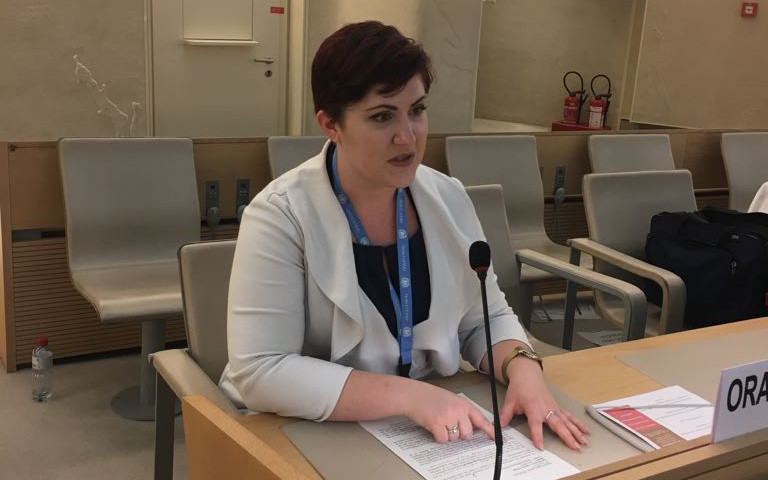On Wednesday 13 March 2019, at the 40th session of the United Nations Human Rights Council in Geneva, ADHRB Legal Officer Bridget Quitter delivered an oral intervention during the General Debate on Agenda Item 5. In her remarks, Quitter highlighted continued acts of reprisals against the family of London-based human rights defender Sayed Ahmed Alwadaei. Members of his family that remain in Bahrain have been targeted due to his activism. Continue reading for the full text of her remarks, or click here for a PDF of her comments.
Mr. President,
ADHRB wishes to bring to the Council’s attention continued reprisals against the family of Sayed Ahmed Alwadaei, a Bahraini human rights activist, because of his activism, including participation in past Human Rights Council sessions.
Mr. Alwadaei has participated in numerous Council sessions, including most recently in HRC34 in March 2017. Because of his activism, his mother-in-law, brother-in-law and cousin were detained in reprisal. In detention, Alwadaei’s relatives faced ill-treatment and torture, including forced standing and beatings and they were sentenced to three years in prison for allegedly planting a faked bomb, based on coerced confessions. The Court of Cassation upheld their convictions on the first day of this Council session, 25 February, despite the Working Group on Arbitrary Detention’s recent opinion that the three have been detained in reprisal for Alwadaei’s human rights work and subjected to unfair trials. However, rather than releasing these family members, the Bahraini government responded to calls from civil society for their release by calling Alwadaei a “terrorist.”
Considering the long history of these deeply concerning reprisals against human rights defenders and their families relating to their ongoing engagement at the UN, we urge the Council to publicly denounce the Government of Bahrain’s continued practice of reprisals against the Alwadaei family, and to implement the Working Group’s recommendations by releasing his family members, expunging their convictions, and providing compensation for their suffering.
Thank you.





